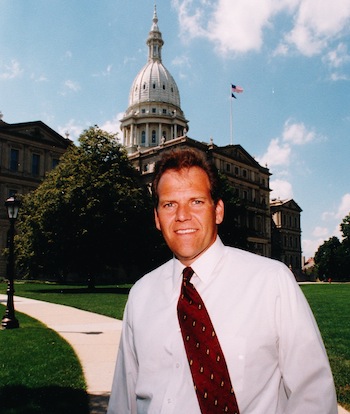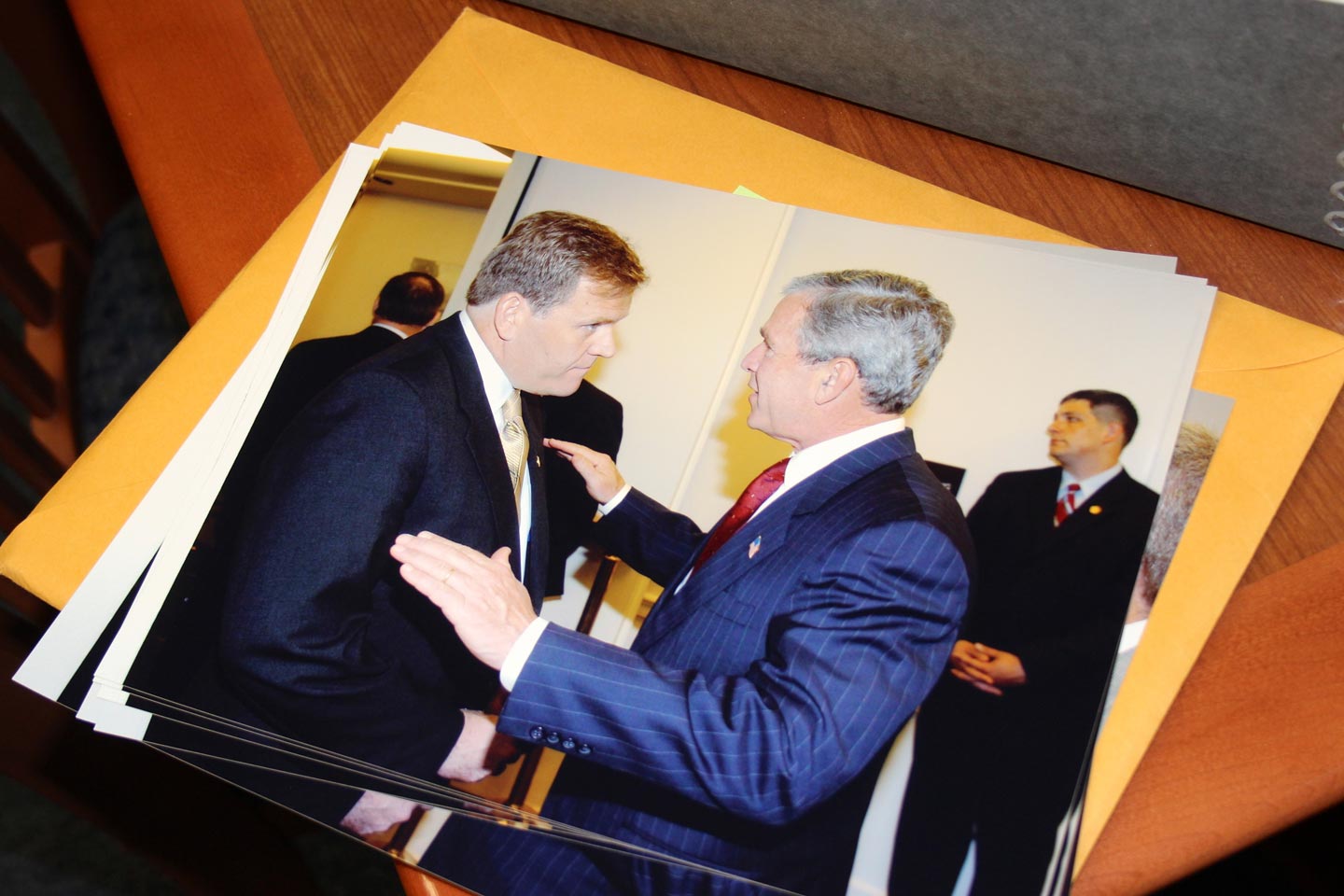Oakland University Archives and Special Collections acquires Congressman Mike Rogers’ papers

The Mike Rogers collection was acquired by Oakland University in January 2015 at the initiative of the Political Science department and the University Library, and placed in the custody of Oakland University Archives and Special Collections. It is expected that the collection will be made available to the public in the fall of 2016.
About the Collection:
The collection consists of 11 boxes of documents and photos, 215 artifacts, and more than 27,000 digital files that come from Congressman Rogers’ Washington and Lansing offices.
The collection covers the Congressman’s tenure in the Michigan Senate and his time in the United States House of Representatives,” according to Dominique Daniel, associate professor, Kresge Library and coordinator of Archives and Special Collections. “It includes newsletters, press releases, speeches, and media appearances, as well as internal documents from the Congressman’s office.”
The collection has great research value for historians, political scientists and other scholars. It will also be used for teaching and other learning purposes at Oakland University. The collection features sweeping insider coverage of Rogers’ state senate career, and the 2000 8th District election.
Visitors will have access to research and discussions about issues important in Michigan’s early 21st century history, such as the prohibition of drilling on the Great Lakes in 2002, and Rogers’ fight to ban Canadian trash from Michigan’s landfills. There is also material about topics of national interest, including veterans’ affairs, Indian gaming laws and the Benghazi hearings.
In addition, researchers will be able to see a definitive compilation of Rogers’ press materials. These include video of Rogers’ television appearances and full documentation of his speeches and newspaper clippings.
In the summer of 2015, an undergraduate student was hired through the Summer Student Campus Corps to start cataloging the numerous images and videos in the collection. Now, David Wagner, a part-time archivist and public historian, has been hired as project archivist. Wagner is working on the digital files in the collection of Congressman Rogers papers. He will create an inventory, add metadata to photos and videos, and create web pages to promote the collection.
About Mike Rogers:

Mike Rogers was born on June 2, 1963 in Howell, Michigan. After serving as a commissioned officer in the United States Army through the Reserve Officers’ Training Corps, Rogers became an FBI special agent. In 1995, he went into politics, and was elected as the state senator of Michigan’s 26th District. He served as Majority Floor Leader between 1999 and 2000 before moving on to the national stage via the U.S. House of Representatives in 2001. Ro
gers enjoyed a nearly 15-year career in the House, as representative of Michigan’s 8th District, before retirement in 2015. He is currently the host of a nationally-syndicated radio program on Westwood One, and has been a national security contributor on CNN.
Rogers was among the more influential members of the U.S. House of Representatives during the first decade of the 21st century. Rogers was elected as representative of Michigan’s 8th District in 2000, in one o
f the closest elections in United States history. He focused on numerous issues in his House career. Much of his sponsored legislation emphasized Michigan environmental preservation -- he was the primary force behind attempts to ban Canadian trash from Michigan landfills, was instrumental in banning drilling on the Great Lakes, and fought the introduction of Asian carp into Michigan lakes. Nationally, he was interested in health care -- particularly the prevention of child injuries -- and security -- particularly the prevention of internet crime. Beginning in 2011, Rogers was the chairperson of the Permanent Select Committee on Intelligence.
Throughout his career, Rogers was known for emphasizing bipartisanship, often working with Democrats on health legislation. In his time as chairman of the House Intelligence Committee, the committee was an island of bipartisanship, in contrast to the rest of Congress, which Rogers claims felt like being “in a messy divorce, every day.” Rogers managed to pass the first intelligence-funding bill in five years (in 2011), and several others over subsequent years.
 |
| Mike Rogers with President George W. Bush in a photograph from the collection. |
